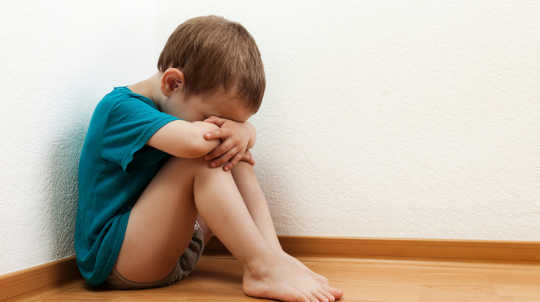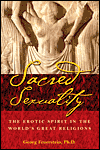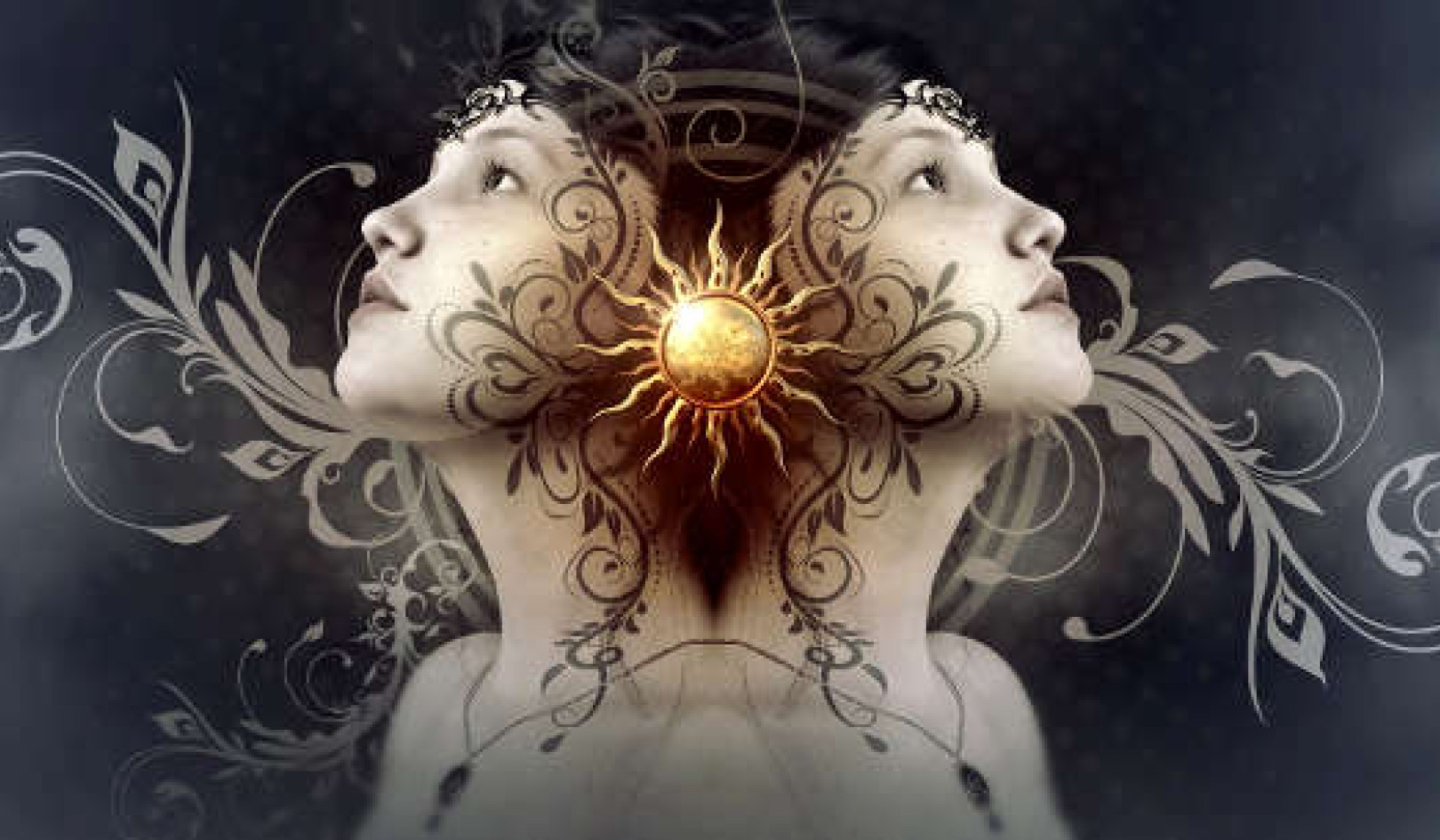
Everyone has experienced guilt at one time or another. In fact, millions of people are burdened by feelings of guilt of all sorts, especially sexual guilt. But what is guilt? What, in particular, is sexual guilt? Where does it come from? How does it differ from shame? What is the effect of guilt on us? Can we ever completely rid ourselves of guilt? Should we even attempt do so?
The word guilt stems from the Old English term gylt, which refers to a fine for an offense. Today, guilt signifies the objective state of having done wrong, of being in breach of a law, and hence of being liable for a penalty. In the subjective sense, guilt stands for the nagging feeling of having done wrong, of being culpable. It is the concern over the rightness or wrongness of one's action. This concern implies a worry that one might be found out, or caught, and as a consequence be suitably chastised. This worry can manifest even without a person having committed a wrongful act; the mere intention to do so is sometimes enough to provoke feelings of guilt.
Not infrequently our guilt feelings are quite disproportionate to their causes and any consequences arising from them. It is as if we had an inborn guilt trigger that goes off at the slightest provocation.
Guilt: A Normal Emotion
Not all guilt is inappropriate and unhealthy, however. Guilt, like anger or jealousy, is a normal emotion. Only exaggerated and persistent feelings of guilt are a sign of neurosis. Wayne W. Dyer, in his popular book Your Erroneous Zones, called guilt "the most useless of all erroneous zone behaviors" and "by far the greatest waste of emotional energy."'
Psychotherapists know that even those clients who are not aware of any guilt feelings or who deny having them soon discover, if confronted with their unconscious, that they are in fact sitting on a Pandora's box of guilt. Guilt is apparently a universal phenomenon in the human family. Whatever race or culture we belong to, we are all apt to make mistakes and errors of judgment that bring us in conflict with existing laws, mores, or etiquette and that can cause us to feel temporary regret or remorse, perhaps mixed with fear of discovery and punishment.
As you will shortly see, guilt has even deeper roots, which reach down into the human condition itself. First, however, it is necessary to look at the feeling of shame, the second stumbling block to sexual and emotional wholeness.
Shame: The Feeling Of Being Unworthy
Guilt is closely connected with shame but must be distinguished from it. Guilt is the painful feeling resulting from our awareness that we have done something bad or unworthy. Shame, on the other hand, is the painful feeling that we are bad or unworthy. The expression "I could die from shame" describes this sense of self-abnegation well. The distinction between doing something unworthy and being unworthy has come to play an important role in the recent literature on addiction and recovery. In their valuable book Letting Go of Shame, Ronald and Patricia Potter-Efron offer these clarifying observations:
There are important differences between shame and guilt. First, shame concerns a person's failure of being, while guilt points to a failure of doing. Shamed people believe something is basically wrong with them as human beings, while the guilty people believe they have done something wrong that must be corrected...
A second major difference is that the shamed people usually are bothered by their shortcomings, while guilty people notice their transgressions...
The third difference between shame and guilt is that the shamed person fears abandonment, while the guilty person fears punishment. The reason the shamed person fears abandonment is that he believes he is too flawed to be wanted or valued by others...
Shame can be more difficult to heal than guilt, because it is about the person rather than specific actions. The shamed person heals by changing her self-concept so that she gains new self-respect and pride.
It is easy to see how shame may follow upon feelings of guilt or how it can feed guilt. The two emotions can be like a revolving door that keeps the person trapped in a perpetual spin.
Sexual Guilt And Shame
The experience of guilt and shame is especially pronounced, if not omnipresent, in the area of sexuality. Not a few men and women feel guilty about sex itself; they think sex is dirty or inhuman. They avoid making love, or if they do have sex, it is in the form of a hasty encounter in the dark while wearing pajamas and nightgown. Such people never talk about sex or their suffering. Their sexual paranoia and frustration spills over into their marital and family life as well as into all their other relationships and activities. This sex-negative disposition is especially prominent in religious fundamentalist circles.
The sexual revolution notwithstanding, we, as Westerners, are still suffering the backwash of centuries of sexual repression under the Christian Church. Alex Comfort, a physician who was one of the movers of the sexual revolution, commented:
Whatever Christianity may have contributed to the growth of our culture in other fields, it seems undeniable that in sexual morals and practice its influence has been less healthy than that of other world religions.
Comfort also observed that the "fact of having made sex into a 'problem' is the major negative achievement of Christendom." We do not have to be anti-Christian to concur with this statement. Some of the finest advocates for Christianity have rebuked the overly sex-negative attitudes of the Christian heritage.
The Denial Of The Body
When we inspect the Christian view of sex more closely, we find at its bottom a stubborn denial or denigration of bodily existence. The body -- or the flesh -- is regarded as the enemy of the spirit. Kenneth Leech, an Anglican priest, has this passionate criticism:
It is through the flesh that salvation comes. And yet so much in Christian spirituality and Christian life is flesh-denying, flesh-despising, flesh-devaluing. It is head-centered, ponderous, life-extinguishing, devoid of passion. . . .
According to the classic Christian model, the body is innately impure and thus is inimical to religious or spiritual life. This view of embodiment has caused immense trauma among Christians, and it continues to do so. We are supposed to feel guilty and ashamed about our body. We are meant to feel especially guilty and ashamed about our sexual organs and their functions. And a good many people, though they may consciously reject puritanism, have unconsciously accepted this negative message, which comes to us across the centuries from Platonism, Gnosticism, Christianity, and finally from the dualistic philosophy of Descartes on which our whole scientific edifice is built.
As historian and social critic Morris Berman has argued in his breathtaking study Coming to Our Senses, we in the West have lost our bodies. We are largely out of touch with genuine somatic reality. There is a frightening conspiracy of silence about bodily processes, including death. Because we are "out of the body," we seek to ground ourselves by resorting to substitutes -- secondary satisfaction -- such as success, reputation, career, self-image, and money, as well as spectator sports, nationalism, and war.
But these substitutes offer no ultimate fulfillment, and consequently, as Berman notes, "our defeat shows in our bodies: we either 'prop ourselves up,' so to speak, or slump in a posture of collapse." Although we disregard our own somatic reality, we are paradoxically preoccupied with the body and how it looks. We seek to improve it through makeup, fine clothes, hairdos, plastic surgery, deodorants, health foods, vitamins, and jogging.
Our fear of the body is expressed in our irreverence for nature at large, which we tend to exploit and use as a dumping ground for the discards of our consumerist civilization. As the feminist movement has made clear, the same alienation from the body is also evident in our disregard for the female gender, which symbolizes nature and embodiment. The correlation body:nature:woman:sexuality is a very important contemporary insight. Unless we become fully cognizant of it and its many implications, we cannot understand our postmodern world and the challenge before us, both on the personal and the societal level.
Guilt, Shame, And Ecstasy
"Shame eats the soul," writes social theorist Victor J.Seidler. Guilt likewise grinds away at our being. Both guilt and shame countermand our native creativity and exuberance of life. People who are chronically guilty tend to be walking "black holes." Their outlook on life is bleak. They are complainers, blamers, and failures. They absorb the energies of others but fail to project and share their own. They are ill-equipped for the rigors of a life dedicated to personal growth, which demands a great deal of self-confidence, willpower, courage, and, above all, the intent to change and grow.
Psychoanalysis has given us a rather somber but essentially correct vision of our Western civilization as a giant template producing millions of guilty and ashamed consciousnesses. As Sigmund Freud proposed in his classic work Civilization and Its Discontents, civilization conspires to make us inauthentic and anti-ecstatic. According to Freud, we are individually motivated by the need for happiness, the pleasure principle, while civilization perpetually seeks to direct that need along acceptable channels. Thus we end up choosing security over self-expression and freedom. Freud speculated that perhaps all of humanity is neurotic on this score.
Because of our ambivalent attitude toward embodiment, we are prone to converting our innate drive for happiness into what we might style the fun principle. To be sure, fun is as far removed from happiness as voyeurism is from actual sexual intimacy. As psychoanalyst Alexander Lowen noted:
To the casual observer, it would seem that America is a land of pleasure. Its people seem intent upon having a good time. They spend much of their leisure time and money in the pursuit of pleasure... .
The question naturally arises: Do Americans really enjoy their lives? Most serious observers of the current scene believe that the answer is no. They feel that the obsession with fun betrays an absence of pleasure [or happiness].
In his "passionate ethnography" entitled Culture Against Man, anthropologist Jules Henry made the point that fun is a way of staying alive in a culture that is riddled with boredom. Commenting on his fellow Americans, Henry remarked:
Fun, in its rather unique American form, is grim resolve. When the foreigner observes how grimly we seem to go about our fun, he is right; we are as determined about the pursuit of fun as a desert-wandering traveler is about the search for water, and for the same reasons.
Henry was wrong in assuming that this grim pursuit of fun is uniquely American -- pleasure-seekers are an integral part of other postindustrial societies as well. He was also wrong in suggesting that fun is "a clowning saboteur undermining the very system fun was meant to sustain." On the contrary, fun supports the status quo. It is merely a safety valve for the pent-up frustrations of those living in a competitive society such as ours.
We can consider ordinary life as the habit of living below our human potential, below our capacity for experiencing genuine happiness, even ecstasy. Psychologist Robert A. Johnson made these pertinent comments in his best-selling work Ecstasy:
It is a great tragedy of contemporary Western society that we have virtually lost the ability to experience the transformative power of ecstasy and joy. This loss affects every aspect of our lives. We seek ecstasy everywhere, and for a moment we may think we have found it. But, on a very deep level, we remain unfulfilled.
We remain unfulfilled because, on the whole, we no longer intuit the nature of happiness. We confuse it with spurts of pleasure or, more exactly, with fun arrived at mechanically, whether it be through genital friction, and ingestion of alcohol, or TV voyeurism.
Avoidance Of Bliss
One form in which we express and perpetuate our personal and societal "disease" is by our cleaving to genital sensations, especially orgasm. Through orgasm we seek to punctuate the monotony of our life while at the same time reducing nervous tension.
Actual sexual addiction, like nicotine, alcohol, or drug addiction, is simply a more exaggerated and therefore more conspicuous version of that same basic disposition to settle for short-lived thrills of the nervous system rather than a penetrating transmutation of ourselves that attunes us to the larger reality and fills our body-minds with the bliss "that passeth all understanding." The addict, observed the cultural philosopher Jean Gebser, "tries to belie his own nature with elements foreign to it."
Sexual addiction comes in many forms and guises, which have been presented by psychotherapist Anne Wilson-Schaef in her book Escape From Intimacy. At one end of the spectrum of addictive behavior described by Wilson-Schaef is "Molly," who is described as a sexual anorexic. She was the typical "prudish tease," who liked to come across as sexy and thought incessantly about sex but was afraid of sex and men. She first had to accept her co-dependency before she could recognize her own sexual addiction.
Next, Wilson-Schaef presented the case of "Julian," whose addiction to sexual fantasies threatened to destroy his marriage and family. Then there is "Leslie," an inveterate masturbator who took greater and greater risks with her secret habit until she started to live for the next orgasm in a socially or physically risky situation. At the other end of the behavioral spectrum is sexual violence -- from rape to incest to child molesting to sadomasochism.
Sexual addiction is a special way of avoiding happiness, or ecstasy. It substitutes local pleasure or instant thrill for abiding happiness.
The Quest For Transcendence
Civilization has always sought to inhibit and regulate our instinctual life, and it has surrounded sex and aggression with a great variety of restrictions and severe prohibitions, called taboos. Consequently, civilization has been a breeding ground for pervasive feelings of guilt. Freud deserves credit for making us aware of our pervasive guilt feelings and for exposing some of the mechanics behind them.
However, with the hindsight of the past five or more decades, we must now acknowledge that Freud's model of the human being was sadly deficient. It still owed too much to the materialist ideology of the nineteenth century, which interpreted the body-mind as a machine. A more penetrating view is today espoused by transpersonal psychology. This young discipline maintains that beneath our hunt for fun or fleeting pleasure there lies buried a deep desire to realize our ecstatic potential. But to realize ecstasy means to transcend ordinariness. In fact, it means to transcend all experiences conditioned by space-time -- hence transpersonal, which means "beyond the personal," or beyond the ordinary limited sense of identity.
This brings us to a consideration of the profound theme of what the religious traditions call the spirit or the spiritual dimension of existence. The spirit refers to that aspect of human life which participates in the larger reality that is named God, Goddess, the Divine, Absolute, Tao, Shunya, Brahman, or Atman.
The Chinese word tao means "way" and stands for the ultimate thing, or process, which includes all visible and invisible processes or realities but is not confined to them. The Buddhist Sanskrit term shunyaBrahman comes from the root brih, meaning "to grow, expand." It is that which is infinitely large and all-comprising -- the transcendental ground of the universe. The Sanskrit term atman means "self" and designates the ultimate subject, or transcendental self, concealed deep within the human personality, which is infinite and timeless. means "void" and refers to the ultimate reality insofar as it is devoid of all characteristics and hence is finally incomprehensible to the finite human mind. The Sanskrit word
The Divine, or ultimate reality, is inherently sacred. That is to say, it is set apart from conventional human life and our ordinary presumptions about existence, and it fills us with awe. The Divine has variously been envisioned as the Creator of the world (as in Judaism, Christianity, and Islam) or as the very foundation or essence of the universe (as in Taoism, Hinduism, and some schools of Buddhism).
We are afraid of the sacred just as we are afraid of deep pleasure or bliss, because they all threaten to undermine our familiar identity, which is the ego-personality, our sense of being a particular, limited body-mind.
The ego, one might say, is the primary Atman substitute. It is responsible for all subsequent substitutes, which are then experienced in relationship to this artificial center of subjectivity. The ego is responsible, in other words, for our peculiar experience of reality: we experience reality as external to ourselves; we objectify life as a separate event. We objectify our own body and thus separate it from the person we deem ourselves to be.
As we grow, our urges become more refined and we wean ourselves away from our pursuit of this or that Atman substitute, until the spiritual impulse presents itself in its purity and the Atman project comes fully into its own. It is only then that we begin to value ecstatic self-transcendence, or spiritual enlightenment, above all momentary satisfactions. It is only then that we fully realize that we are the body and that the body is not external to ourselves or separate from the rest of the world. Ecstasy is the realization of the essential interconnectedness of all existence.
From Sexual Malaise To The Loss Of The Sacred
In the final analysis, our sexual malaise turns out to be a spiritual problem. We experience ourselves at odds with the universe at large, alienated from what theologians have called the ground of being. In many ways, we have lost sight of the sacred. Our lives are marked by an unhappy rift between the sacred and the profane.
There is, however, a growing awareness in our Western civilization that in order to heal our psyche and our ailing society, we must repair this multiple breach. In particular, we must reconnect with the sacred.
Luckily, the sacred proves to be a pervasive power in the universe that cannot be easily ignored. Suddenly -- sometimes at the oddest times -- there is a momentary breakthrough when the spiritual or sacred dimension of existence makes itself known to us. We may be listening to a Beethoven sonata, tending our garden, hiking in the wilderness, or passionately making love. In that instant, we are healed at the core of our being. There is joy, happiness, bliss, ecstasy.
Reprinted with permission of the publisher,
Inner Traditions Intl. ©1992,2003.
http://www.innertraditions.com
Article Source:
Sacred Sexuality: The Erotic Spirit in the World's Great Religions
by Georg Feuerstein, Ph.D.
 This book examines the history of sexuality as a sacramental act. In spite of our culture’s recent sexual liberalizations, sexual intimacy often remains unfulfilling. Georg Feuerstein instructs that the fulfillment we long for in our sex lives can only be attained once we have explored the spiritual depths of our erotic natures.
This book examines the history of sexuality as a sacramental act. In spite of our culture’s recent sexual liberalizations, sexual intimacy often remains unfulfilling. Georg Feuerstein instructs that the fulfillment we long for in our sex lives can only be attained once we have explored the spiritual depths of our erotic natures.
Info/Order this book. Also available as a Kindle edition.
About the Author
GEORG FEUERSTEIN, Ph.D. (27 May 1947 – 25 August 2012) was the author of over thirty books , including The Yoga Tradition, The Philosophy of Classical Yoga, Holy Madness, Tantra: The Path of Ecstasy, and Lucid Waking. He was the founder-president of the Yoga Research and Education Center. To read more of his writings, visit: https://georgfeuerstein.blogspot.com/
























